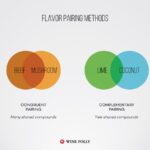Are you looking for the best foods to improve your eye health? What Foods Are Good For The Eyes? FOODS.EDU.VN brings you a detailed guide on incorporating nutrient-rich foods into your diet to support and enhance your vision. From omega-3 fatty acids to essential vitamins, discover how the right foods can protect your eyes and keep them healthy. Dive into our comprehensive articles for more expert advice on vision enhancement, dietary changes, and preventative care.
1. Why Is Nutrition Important for Eye Health?
Proper nutrition plays a vital role in maintaining optimal eye health. Nutrient-rich foods provide the essential vitamins, minerals, and antioxidants needed to protect your eyes from damage and age-related diseases. A balanced diet can significantly reduce the risk of developing conditions like cataracts, macular degeneration, and dry eyes. According to a study by the National Eye Institute, specific nutrients such as lutein, zeaxanthin, and omega-3 fatty acids are particularly beneficial for eye health.
1.1. How Do Antioxidants Benefit Your Eyes?
Antioxidants protect your eyes by combating free radicals, unstable molecules that can damage cells in the eye. Antioxidants like vitamins C and E neutralize these free radicals, reducing oxidative stress and supporting overall eye health. A diet rich in antioxidants can help prevent age-related macular degeneration (AMD) and cataracts, ensuring your vision stays sharp and clear.
1.2. The Role of Vitamins and Minerals in Vision
Vitamins and minerals are essential for various functions within the eye. Vitamin A is crucial for maintaining the cornea’s health and is necessary for good vision, especially in low light. Zinc helps transport vitamin A from the liver to the retina, where it’s used to produce melanin, a pigment that protects the eyes. Vitamins C and E act as antioxidants, safeguarding the eyes from damage. Ensuring you get enough of these nutrients supports optimal eye function and reduces the risk of vision problems.
2. Top Foods for Eye Health
Incorporating specific foods into your diet can significantly boost your eye health. These foods are packed with essential nutrients known to support vision and protect against eye diseases.
2.1. Fish Rich in Omega-3 Fatty Acids
Fish like salmon, tuna, and mackerel are excellent sources of omega-3 fatty acids, which are crucial for eye health. Omega-3s can help reduce the risk of dry eyes and macular degeneration.
According to the American Academy of Ophthalmology, omega-3 fatty acids contribute to the structural integrity of the retina and can improve overall eye comfort.
2.2. Leafy Green Vegetables
Spinach, kale, and collard greens are rich in lutein and zeaxanthin, antioxidants that protect the macula, the central part of the retina.
These antioxidants filter harmful high-energy blue wavelengths of light and help protect against oxidative damage. Studies have shown that a higher intake of lutein and zeaxanthin is associated with a lower risk of AMD and cataracts.
2.3. Eggs for Lutein and Zeaxanthin
Eggs are a great source of lutein and zeaxanthin, as well as zinc. These nutrients help protect the retina from damage and filter harmful blue light. Incorporating eggs into your diet can improve overall eye health and visual function.
According to research published in the Journal of Nutritional Science, the lutein and zeaxanthin found in eggs are highly bioavailable, making them an excellent choice for supporting eye health.
2.4. Citrus Fruits and Berries Rich in Vitamin C
Citrus fruits like oranges, lemons, and grapefruits, as well as berries such as strawberries, blueberries, and raspberries, are packed with vitamin C. Vitamin C is a powerful antioxidant that helps protect the eyes from oxidative damage and can reduce the risk of cataracts.
2.5. Nuts and Seeds for Vitamin E
Almonds, walnuts, sunflower seeds, and flaxseeds are excellent sources of vitamin E, an antioxidant that protects cells from damage. Vitamin E supports overall eye health and can help prevent age-related eye diseases.
Including a variety of nuts and seeds in your diet ensures you receive a steady supply of vitamin E, promoting long-term vision health.
2.6. Carrots and Sweet Potatoes for Beta-Carotene
Carrots and sweet potatoes are rich in beta-carotene, a form of vitamin A that is crucial for good vision, especially in low light. Beta-carotene helps the eyes adjust to darkness and protects the cornea.
This nutrient also acts as an antioxidant, reducing the risk of macular degeneration and cataracts. Eating beta-carotene-rich foods supports overall eye function and helps maintain clear vision.
2.7. Legumes for Zinc
Beans, lentils, and other legumes are excellent sources of zinc, a mineral that plays a crucial role in bringing vitamin A from the liver to the retina. Zinc is essential for the production of melanin, a pigment that protects the eyes.
Including legumes in your diet can help improve night vision and protect against age-related macular degeneration.
2.8. Water for Hydration and Eye Health
Staying hydrated is crucial for maintaining overall eye health. Water helps keep your eyes lubricated, reducing the risk of dry eyes and discomfort.
Dehydration can lead to various eye problems, including blurred vision and eye strain. Drinking plenty of water throughout the day ensures your eyes stay healthy and function optimally.
2.9. Lean Meats and Poultry for Zinc
Lean meats and poultry are high in zinc, which helps transport vitamin A from the liver to the retina. This process is essential for producing melanin, a pigment that protects the eyes from harmful UV rays and reduces the risk of macular degeneration.
Adding lean meats and poultry to your diet can improve your overall eye health and protect against age-related vision problems.
2.10. Broccoli and Brussels Sprouts
Broccoli and Brussels sprouts are packed with vitamins A, C, and E, providing a powerful combination of antioxidants that protect your eyes from free radicals.
These vegetables support overall eye health and can help prevent age-related eye diseases. Including them in your diet ensures your eyes receive the nutrients they need to stay healthy.
3. Specific Nutrients and Their Benefits for Eyes
Understanding the specific nutrients and their benefits can help you make informed dietary choices to support your eye health.
3.1. Lutein and Zeaxanthin
Lutein and zeaxanthin are powerful antioxidants that protect the macula from damage. They filter harmful blue light and reduce the risk of age-related macular degeneration (AMD) and cataracts.
Food Sources:
- Leafy green vegetables (spinach, kale)
- Eggs
- Corn
3.2. Vitamin A
Vitamin A is essential for maintaining a healthy cornea and good vision, especially in low light. It supports the overall function of the eyes and helps them adjust to changes in light.
Food Sources:
- Carrots
- Sweet potatoes
- Dairy products
- Liver
3.3. Vitamin C
Vitamin C is a powerful antioxidant that protects the eyes from oxidative damage. It supports the health of blood vessels in the eyes and can reduce the risk of cataracts.
Food Sources:
- Citrus fruits (oranges, lemons)
- Berries (strawberries, blueberries)
- Peppers
- Broccoli
3.4. Vitamin E
Vitamin E is an antioxidant that protects cells from damage and supports overall eye health. It can help prevent age-related eye diseases.
Food Sources:
- Nuts (almonds, walnuts)
- Seeds (sunflower seeds, flaxseeds)
- Vegetable oils
3.5. Omega-3 Fatty Acids
Omega-3 fatty acids are crucial for maintaining the structural integrity of the retina and can reduce the risk of dry eyes and macular degeneration.
Food Sources:
- Fatty fish (salmon, tuna)
- Flaxseeds
- Chia seeds
- Walnuts
3.6. Zinc
Zinc helps transport vitamin A from the liver to the retina, where it’s used to produce melanin, a pigment that protects the eyes. It supports overall eye health and can improve night vision.
Food Sources:
- Lean meats
- Poultry
- Legumes
- Nuts
4. The Impact of Diet on Specific Eye Conditions
A well-balanced diet can play a significant role in managing and preventing various eye conditions.
4.1. Age-Related Macular Degeneration (AMD)
Age-Related Macular Degeneration (AMD) is the most frequent cause of severe visual loss in those over the age of 55 years. Nutrients like lutein, zeaxanthin, vitamins C and E, and zinc have been shown to slow the progression of AMD. A diet rich in leafy green vegetables, citrus fruits, and nuts can help protect the macula and maintain central vision.
4.2. Cataracts
Cataracts are the clouding of the lens in the eye. Antioxidants like vitamin C and vitamin E can help protect the lens from oxidative damage and reduce the risk of developing cataracts.
4.3. Dry Eyes
Dry Eyes can be alleviated by essential omega-3 fatty acids. Omega-3s help maintain tear production and reduce inflammation. Including fatty fish, flaxseeds, and chia seeds in your diet can improve eye lubrication and reduce discomfort.
4.4. Glaucoma
Glaucoma is a condition that damages the optic nerve. While diet alone cannot prevent or cure glaucoma, a diet rich in antioxidants and nutrients can support overall eye health and potentially reduce the risk of optic nerve damage.
5. Creating an Eye-Healthy Meal Plan
Designing a meal plan that incorporates eye-healthy foods can be simple and enjoyable. Here’s a sample weekly meal plan to get you started.
5.1. Sample Weekly Meal Plan for Eye Health
This meal plan includes a variety of foods rich in the nutrients essential for eye health.
| Day | Breakfast | Lunch | Dinner | Snacks |
|---|---|---|---|---|
| Monday | Scrambled eggs with spinach and red peppers, whole grain toast | Grilled chicken salad with mixed greens, carrots, and sunflower seeds | Baked salmon with steamed broccoli and quinoa | Hummus with carrot sticks |
| Tuesday | Greek yogurt with chia seeds, berries, and a drizzle of honey | Quinoa salad with black beans, corn, red peppers, and cilantro | Stir-fried tofu with broccoli, bell peppers, and brown rice | Sliced cucumber and red peppers with tzatziki |
| Wednesday | Vegetable omelette with spinach, red peppers, and onions | Lentil soup with a side of mixed green salad | Grilled chicken breast with roasted carrots and a side of mixed greens | Apple slices with almond butter |
| Thursday | Smoothie with spinach, banana, chia seeds, and almond milk | Chickpea and vegetable stir-fry with carrots and broccoli over rice | Baked cod with steamed green beans and mashed sweet potatoes | Handful of mixed nuts and seeds |
| Friday | Whole grain toast with avocado, poached eggs, and cherry tomatoes | Turkey and vegetable wrap with spinach, carrots, and red peppers | Beef and bean chili with a side of cornbread | Greek yogurt with honey and chia seeds |
| Saturday | Spinach and mushroom frittata | Mixed bean salad with kidney beans, black beans, and lime vinaigrette | Grilled shrimp with quinoa and a side of steamed broccoli | Baby carrots with hummus |
| Sunday | Oatmeal with chia seeds, banana slices, and almond butter | Grilled chicken Caesar salad with dark leafy greens | Baked tilapia with roasted Brussels sprouts and sweet potato wedges | Sliced bell peppers with guacamole |
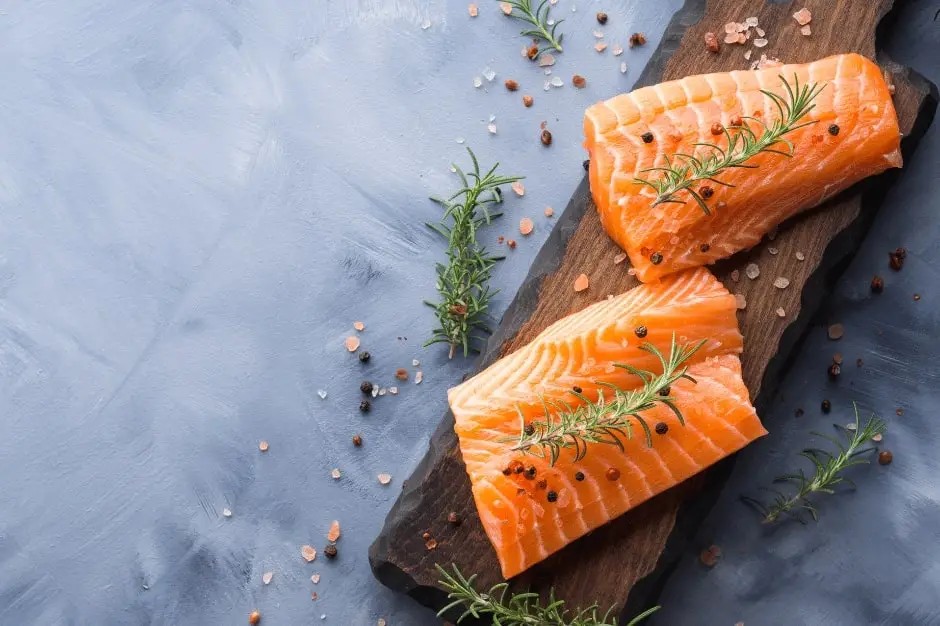
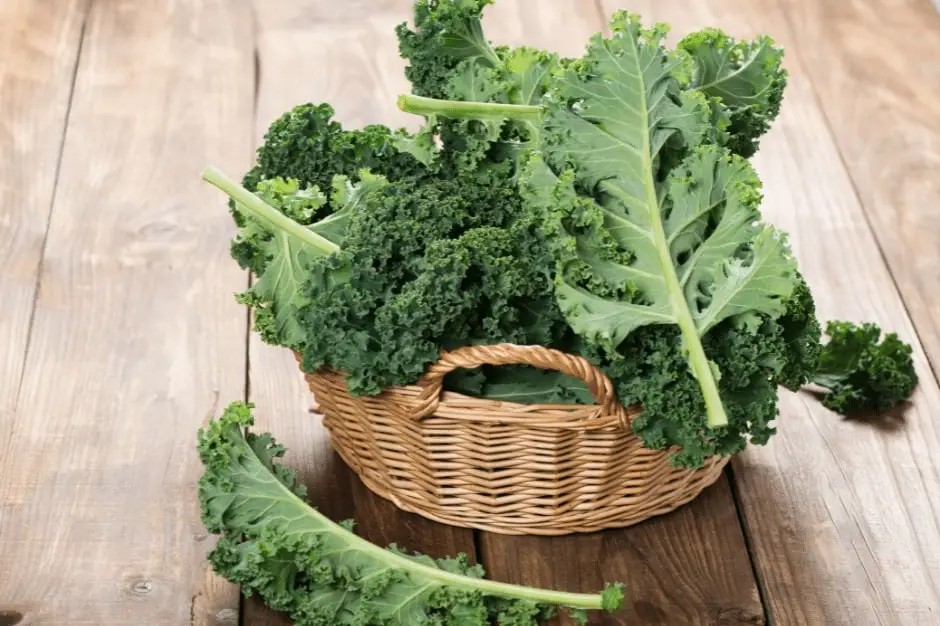
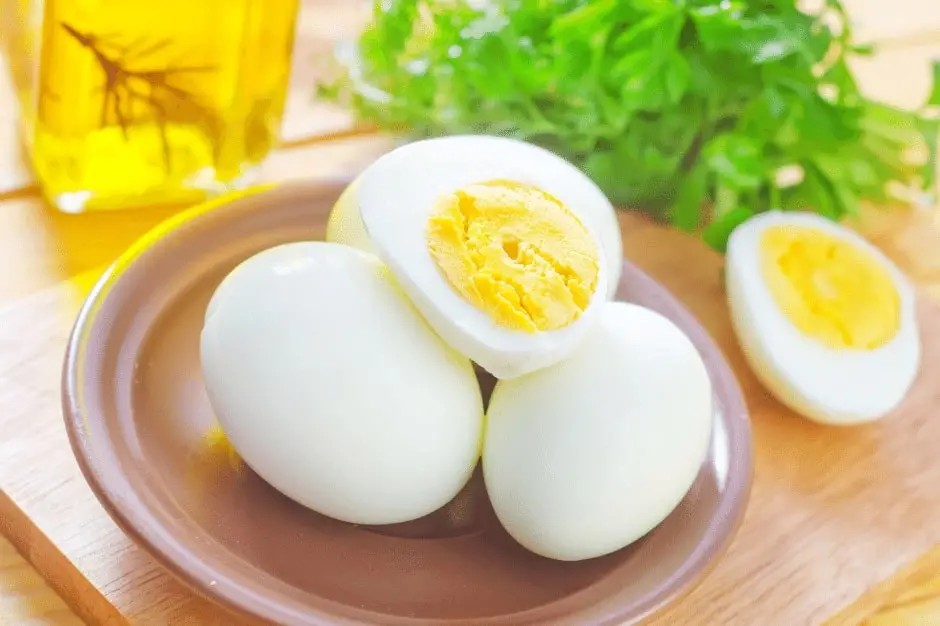
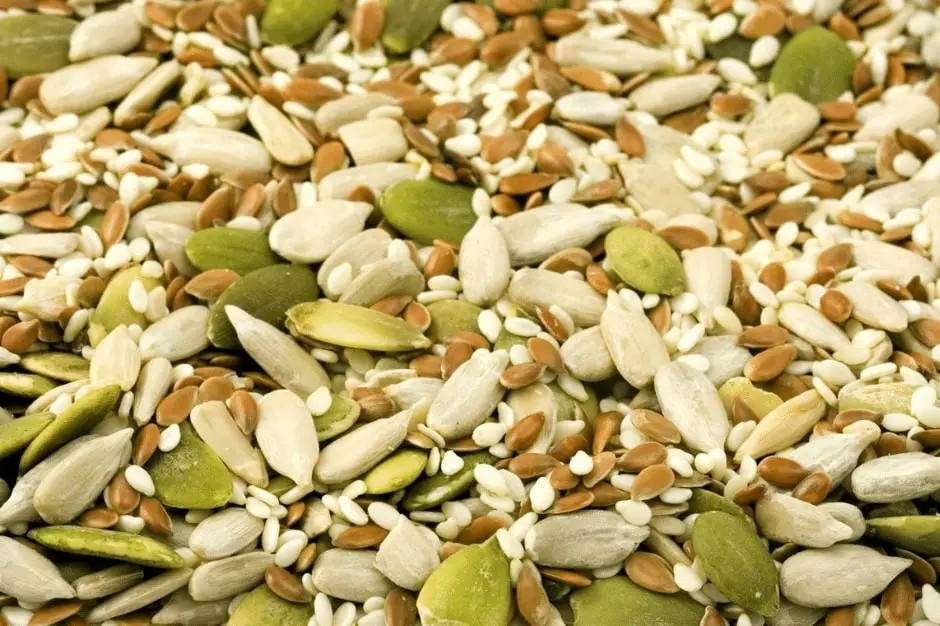
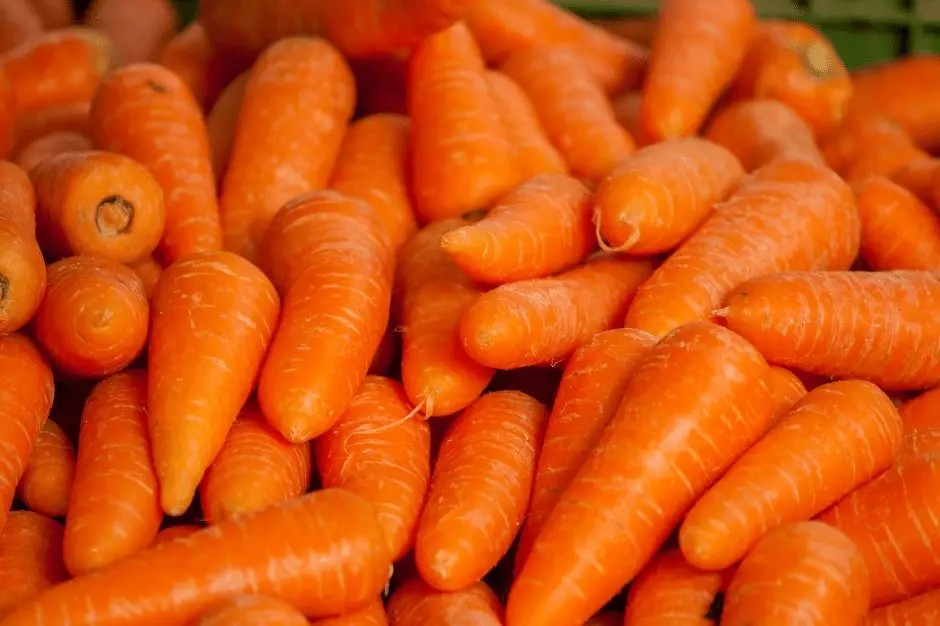
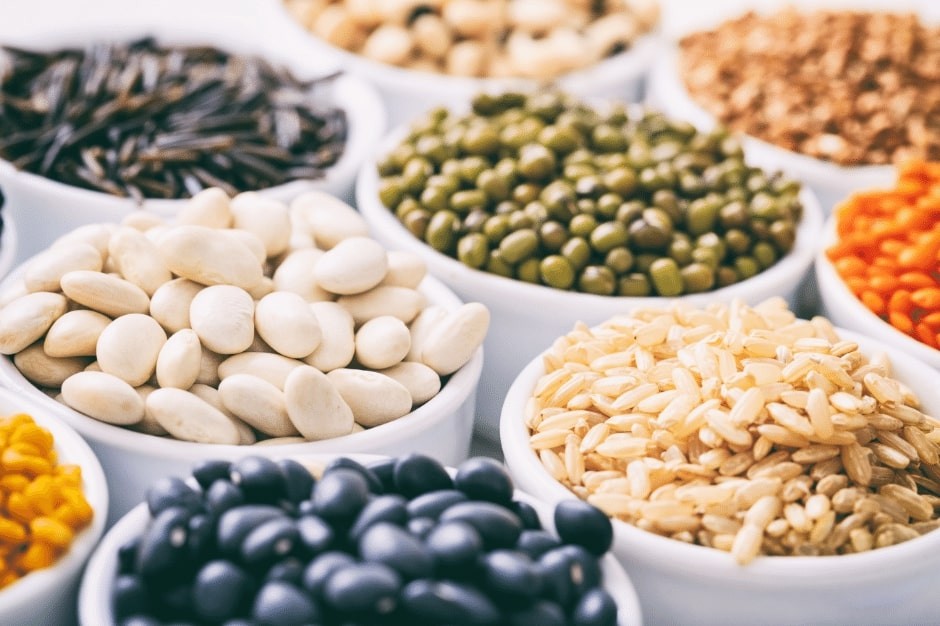
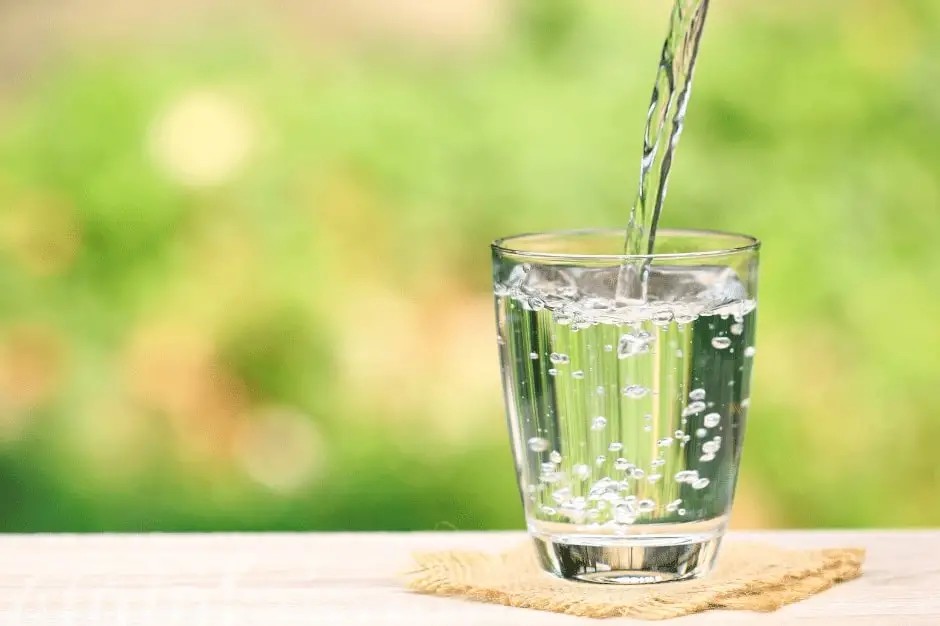

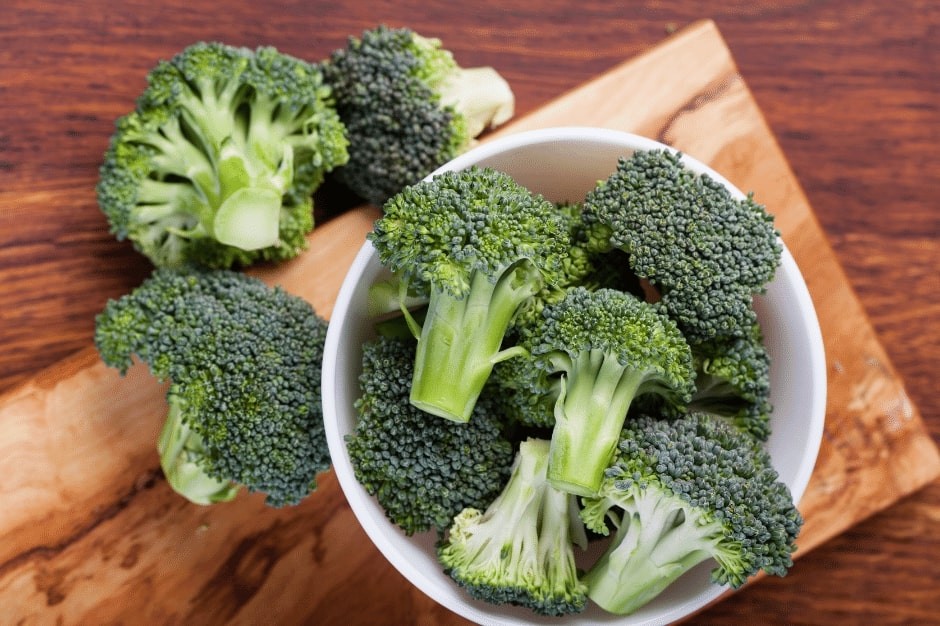
5.2. Tips for Incorporating Eye-Healthy Foods Into Your Daily Diet
- Start with Breakfast: Add spinach to your morning smoothie or enjoy eggs with vegetables.
- Snack Smart: Choose nuts, seeds, and fruits as healthy snacks throughout the day.
- Include Fish Regularly: Aim to eat fatty fish like salmon or tuna at least twice a week.
- Load Up on Vegetables: Make leafy greens and colorful vegetables a staple in your meals.
- Stay Hydrated: Drink plenty of water throughout the day to keep your eyes lubricated.
6. Lifestyle Factors That Impact Eye Health
In addition to diet, several lifestyle factors can significantly impact your eye health.
6.1. The Importance of Regular Eye Exams
Regular eye exams are crucial for detecting eye problems early, even if you don’t notice any symptoms. Early detection and treatment can prevent vision loss and protect your overall eye health.
6.2. Protecting Your Eyes from UV Rays
Excessive sun exposure can damage your eyes and increase the risk of cataracts and macular degeneration. Wear sunglasses that block 100% of UV rays whenever you are outside.
6.3. Reducing Screen Time and Eye Strain
Prolonged screen time can lead to eye strain, dry eyes, and blurred vision. Take regular breaks from your computer, phone, or tablet to reduce eye strain. Follow the 20-20-20 rule: every 20 minutes, look at an object 20 feet away for 20 seconds.
6.4. Avoiding Smoking
Smoking increases the risk of developing various eye diseases, including macular degeneration, cataracts, and optic nerve damage. Quitting smoking can significantly improve your eye health.
6.5. Managing Chronic Conditions
Chronic conditions like diabetes and high blood pressure can negatively impact your eye health. Managing these conditions through diet, exercise, and medication can help protect your vision.
7. Practical Tips for Maintaining Good Eye Health
Here are some additional tips to help you maintain good eye health.
7.1. Simple Exercises for Eye Relaxation
Regular eye exercises can help reduce eye strain and improve focus. Try these simple exercises:
- Blinking: Consciously blink more often to keep your eyes lubricated.
- Palming: Cover your eyes with your palms to block out light and relax your eye muscles.
- Focus Shifting: Focus on a nearby object, then shift your focus to a distant object to improve eye flexibility.
7.2. Creating an Ergonomic Workspace
Ensure your workspace is set up ergonomically to reduce eye strain and discomfort. Position your computer screen at arm’s length and slightly below eye level. Use proper lighting to minimize glare and adjust your screen settings for optimal comfort.
7.3. The Role of Sleep in Eye Health
Getting enough sleep is essential for overall health, including eye health. During sleep, your eyes can rest and repair themselves. Aim for 7-8 hours of sleep each night to maintain optimal eye function.
7.4. The benefits of hydration
Staying hydrated is a key component for overall health and especially crucial for eye health. Proper hydration maintains the moisture balance in your eyes, preventing dryness, irritation, and blurry vision.
8. Debunking Common Eye Health Myths
It’s essential to separate fact from fiction when it comes to eye health. Here are some common myths debunked.
8.1. Myth: Reading in Dim Light Damages Your Eyes
Fact: Reading in dim light may cause eye strain, but it does not cause permanent damage to your eyes.
8.2. Myth: Sitting Too Close to the TV Ruins Your Eyes
Fact: Sitting close to the TV may cause eye strain, but it does not cause long-term vision problems.
8.3. Myth: Carrots Are the Only Food That Improves Vision
Fact: While carrots are good for your eyes, many other foods provide essential nutrients that support eye health. A balanced diet is more important than relying on a single food.
8.4. Myth: Wearing Glasses Makes Your Eyes Weaker
Fact: Wearing glasses corrects your vision but does not weaken your eyes. Glasses help you see clearly and reduce eye strain.
9. Delicious Recipes for Eye Health
Here are some delicious and easy-to-make recipes that incorporate eye-healthy foods.
9.1. Salmon with Roasted Vegetables
This recipe is packed with omega-3 fatty acids, vitamins, and antioxidants.
Ingredients:
- 2 salmon fillets
- 1 cup broccoli florets
- 1 cup sliced carrots
- 1 cup Brussels sprouts, halved
- 2 tablespoons olive oil
- Salt and pepper to taste
Instructions:
- Preheat oven to 400°F (200°C).
- Toss vegetables with olive oil, salt, and pepper.
- Place vegetables on a baking sheet and roast for 20 minutes.
- Place salmon fillets on the baking sheet and bake for another 12-15 minutes, or until salmon is cooked through.
9.2. Spinach and Berry Smoothie
This smoothie is a quick and easy way to get your daily dose of lutein, zeaxanthin, and vitamin C.
Ingredients:
- 1 cup spinach
- 1/2 cup mixed berries
- 1/2 banana
- 1 cup almond milk
- 1 tablespoon chia seeds
- 1 teaspoon honey (optional)
Instructions:
- Combine all ingredients in a blender.
- Blend until smooth.
- Serve immediately.
10. Expert Insights on Eye Nutrition
To provide the most accurate and up-to-date information, we’ve consulted with leading experts in the field of nutrition and eye health.
10.1. Interview with a Registered Dietitian
We spoke with Sarah Johnson, a registered dietitian specializing in eye health, to gain her insights on the best dietary practices for maintaining good vision.
Q: What are the most important nutrients for eye health?
A: Lutein, zeaxanthin, vitamins A, C, and E, omega-3 fatty acids, and zinc are all crucial for maintaining healthy eyes.
Q: Can diet really make a difference in preventing eye diseases?
A: Absolutely! A well-balanced diet rich in these nutrients can significantly reduce the risk of developing age-related eye diseases like macular degeneration and cataracts.
Q: What are some easy ways to incorporate these nutrients into our daily meals?
A: Start by adding leafy greens to your salads and smoothies, snacking on nuts and seeds, and including fatty fish in your meals a couple of times a week. Small changes can make a big difference.
10.2. Advice from an Ophthalmologist
Dr. Emily Carter, an ophthalmologist with over 15 years of experience, shared her advice on maintaining optimal eye health.
Q: How important is diet compared to other factors like genetics and lifestyle?
A: Diet is a crucial component of overall eye health, but genetics and lifestyle also play significant roles. A healthy diet can help mitigate some genetic risks and complement other healthy habits like regular exercise and not smoking.
Q: What are the first signs that someone might need to improve their diet for eye health?
A: Common signs include dry eyes, difficulty seeing at night, and increased sensitivity to light. If you experience any of these symptoms, it’s a good idea to consult with an eye care professional and evaluate your diet.
Q: Are there any specific foods or nutrients that you recommend for people with existing eye conditions?
A: For people with AMD, I often recommend a diet rich in lutein, zeaxanthin, and omega-3 fatty acids. For those with dry eyes, increasing omega-3 intake and staying well-hydrated can be very beneficial.
11. The Future of Eye Health Research
Ongoing research continues to uncover new insights into the relationship between nutrition and eye health.
11.1. Emerging Studies on Eye Nutrition
Recent studies are exploring the potential benefits of other nutrients and compounds for eye health, such as astaxanthin and bilberry extract. These studies aim to provide more targeted and effective dietary recommendations for preventing and managing eye diseases.
11.2. Technological Advances in Eye Care
Advances in technology are also improving our ability to assess and monitor eye health. New diagnostic tools and treatments are being developed to address various eye conditions, offering hope for better vision outcomes in the future.
12. FAQ: What Foods Are Good for the Eyes?
Q1: What foods are good for improving eyesight naturally?
Foods rich in vitamins A, C, and E, zinc, lutein, zeaxanthin, and omega-3 fatty acids are excellent for improving eyesight naturally. These include leafy greens, citrus fruits, nuts, seeds, fish, and eggs.
Q2: Can eating carrots really improve my vision?
Yes, carrots are high in beta-carotene, which is converted to vitamin A in the body. Vitamin A is essential for good vision, especially in low light.
Q3: Are there any foods I should avoid for better eye health?
Limit your intake of processed foods, sugary drinks, and unhealthy fats, as these can contribute to inflammation and oxidative stress, negatively impacting eye health.
Q4: How much of each nutrient do I need for optimal eye health?
Aim for 500 mg of vitamin C, 400 IU of vitamin E, 10 mg of lutein, 2 mg of zeaxanthin, 80 mg of zinc oxide, and 2 mg of copper oxide daily for optimal eye health.
Q5: What are the best snacks for eye health?
Healthy snacks for eye health include nuts, seeds, fruits, and vegetables. Try almonds, walnuts, sunflower seeds, berries, and carrot sticks.
Q6: Can omega-3 supplements help with dry eyes?
Yes, omega-3 supplements can help reduce inflammation and improve tear production, alleviating symptoms of dry eyes.
Q7: Is it possible to reverse vision loss with diet alone?
While diet can significantly improve eye health and slow the progression of certain eye diseases, it may not be able to reverse existing vision loss. Consult with an eye care professional for appropriate treatment options.
Q8: How often should I eat fish for better eye health?
Aim to eat fatty fish like salmon or tuna at least twice a week to get enough omega-3 fatty acids.
Q9: Can children benefit from an eye-healthy diet?
Yes, a nutrient-rich diet is important for children’s eye development and overall health. Ensure they consume plenty of fruits, vegetables, and other eye-healthy foods.
Q10: What are the best cooking methods for preserving nutrients in eye-healthy foods?
Steaming, baking, and sautéing are the best cooking methods for preserving nutrients in eye-healthy foods. Avoid overcooking vegetables, as this can reduce their nutrient content.
13. FOODS.EDU.VN: Your Partner in Eye Health
At FOODS.EDU.VN, we understand the importance of nutrition in maintaining optimal eye health. Our website offers a wealth of information, from detailed articles on eye-healthy foods to practical tips for incorporating these foods into your daily diet. We are committed to providing you with the knowledge and resources you need to protect and enhance your vision.
13.1. Explore More on FOODS.EDU.VN
Discover a wide range of articles, recipes, and expert advice on FOODS.EDU.VN to help you make informed choices about your diet and lifestyle. Whether you’re looking to prevent eye diseases, manage existing conditions, or simply improve your overall eye health, we have the resources you need.
13.2. Stay Connected With Us
Stay updated with the latest research, tips, and recipes by following us on social media and subscribing to our newsletter. Join our community of eye health enthusiasts and share your experiences and insights.
13.3. Contact Us
Do you have any questions or need personalized advice? Our team of experts is here to help.
Address: 1946 Campus Dr, Hyde Park, NY 12538, United States
WhatsApp: +1 845-452-9600
Website: FOODS.EDU.VN
Maintaining good eye health is a lifelong journey, and at FOODS.EDU.VN, we’re here to support you every step of the way.
Are you ready to take control of your eye health? Visit foods.edu.vn today to explore our comprehensive resources and start your journey towards better vision. Discover expert tips, delicious recipes, and in-depth articles that will help you make informed choices and protect your precious eyesight. Don’t wait—your eyes deserve the best care!
